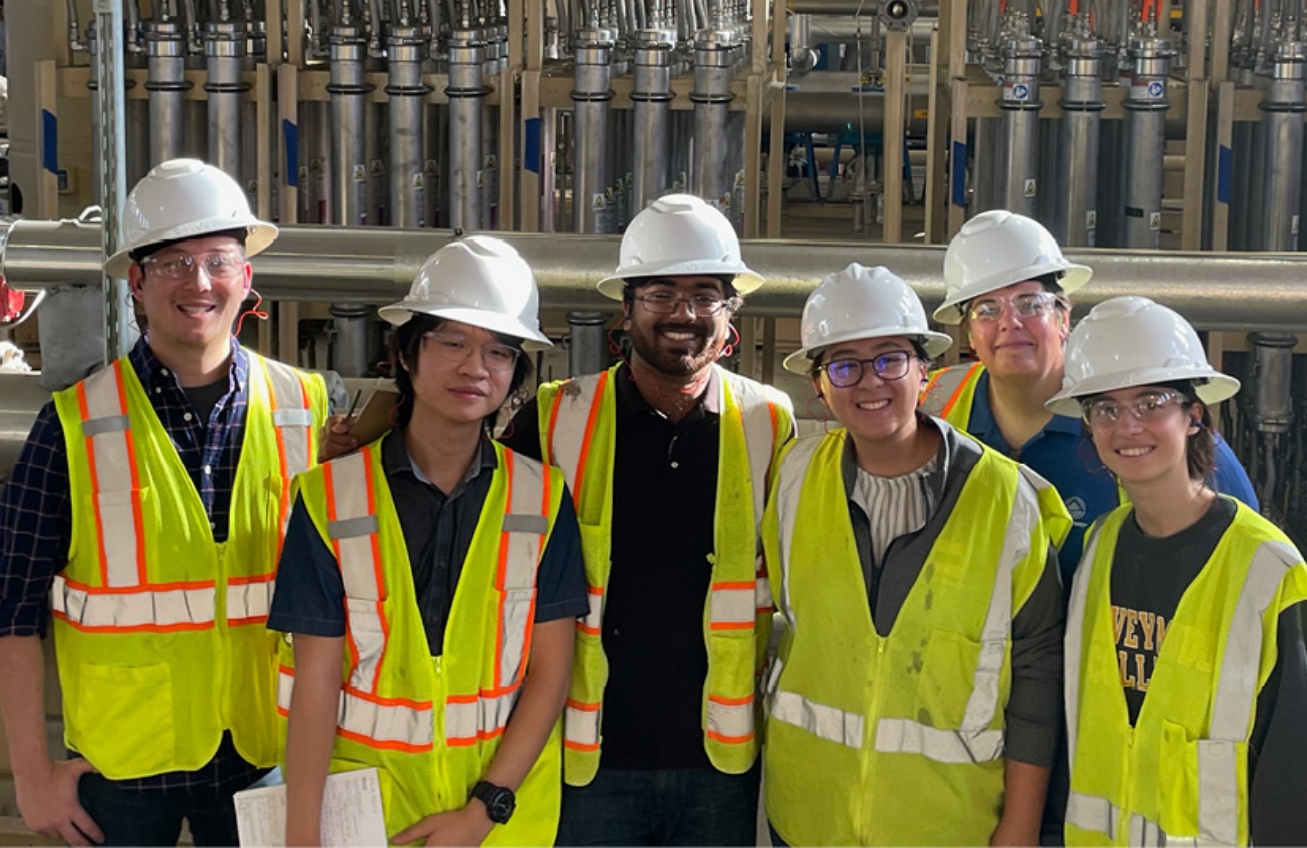Quantum Computing, Blood-feeding Insects and More
Selected 2023–2024 Clinic projects.
Harvey Mudd Clinic teams spent the academic year building working prototypes or helping advance industry standards in research and development. The Clinic Program provides opportunities for students to become well-versed in many areas, apply their learning in creative ways and understand the impact of their work on society. Teams tackle diverse projects, many made possible by community connections, including through parents and alumni.
Computer Science/Global Clinic
Computing Curricula at Musizi University
Musizi University liaisons: Takako Mino CMC ’11, CGU ’13, ’18, Elaine Alowo- Matovu, Jude Watimongo, Maria Assumpta Komugabe CGU ’24, Paul Bagyenda
Students: Andres Rivas, Emily Weiss, James Catron, Ford Ashmun, Abby Tiller
Advisor: Julie Medero, computer science department associate chair and associate professor
Musizi University is a liberal arts and sciences institution of higher education in Ntinda, Kampala, Uganda, that strives to prepare ethical, entrepreneurial and employable leaders who can engage with and shape the world’s emerging technologies. For Musizi’s undergraduate software engineering major, the Clinic team designed materials for six first-year courses: Computational Thinking, Math for Computing, Python, Generative AI, Uganda Studies, and Obuntu Bulamu Philosophy.
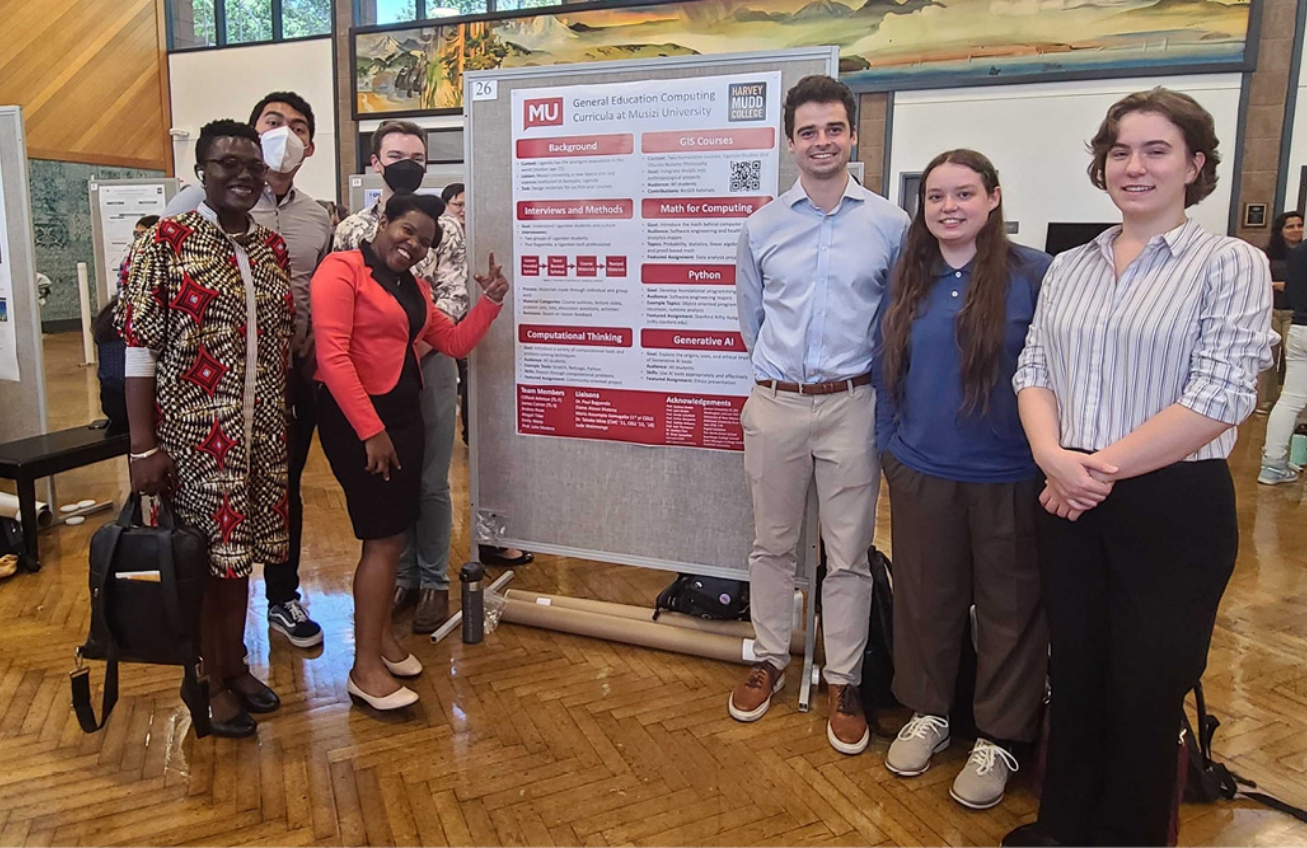
Engineering Clinic
Designing a Modernized Electropenetrograph
Auburn University/USDA liaisons: Dr. Kathryn Reif, Dr. Elaine Backus P19, Andy Dowell
Students: Simon Woodside, Rafael Burger, Tjaard Van Löben Sels, August McIntosh- Lombardo, Audrey Vo
Advisor: Josh Brake, assistant professor of engineering
The spread of arthropod-borne disease affects human health as well as agricultural and livestock resources. Researchers at Auburn University and USDA use a device called an electropenetrograph (EPG) to study insect feeding behaviors relevant to the spread of these diseases. However, existing EPG technology is not well-suited to the study of blood-feeding insects. To address this, the Clinic team designed an EPG with modernized features, including improved ease of use in field experimentation.
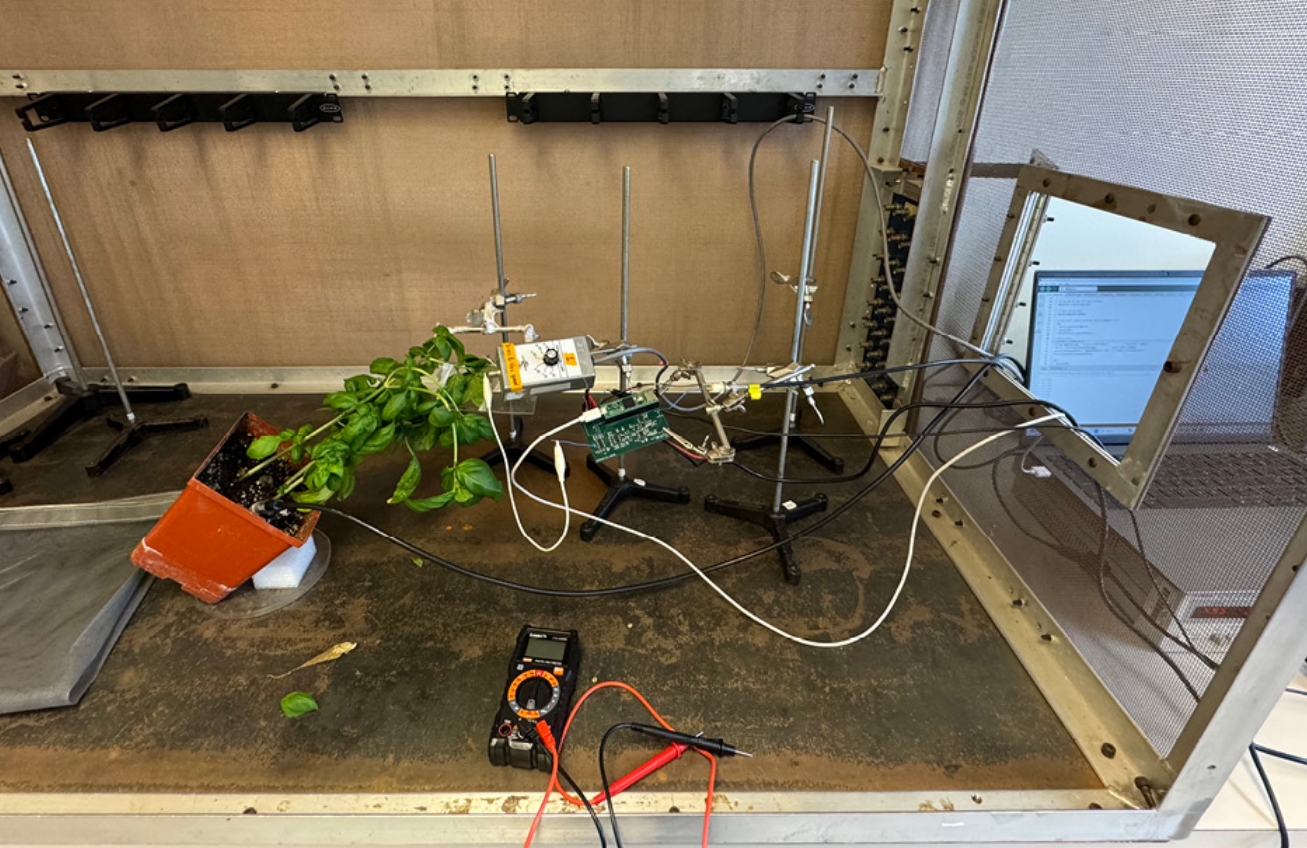
Computer Science/Mathematics Clinic
FizzyO: An Accessible Physical Therapy App for Children with Developmental Delays
ConcentricLife liaisons: Eric Ong ’02, Michael Austin POM ’97
Students: Mohamed Hamouda, Julia Hsing, Vani Sachdev, Joel Tan-Aristy, Amy Yuan
Advisor: Lynn Kirabo, Maria M. Klawe Assistant Professor of Climate and Computer Science
ConcentricLife, part of the Life Sciences group at Accenture Song, is a communications agency that creates purpose-built experiences in the health and wellness space. They seek to make physical therapy for kids with developmental delays more accessible, regardless of a family’s income or place of residence. The Clinic team worked with ConcentricLife to pioneer a solution through FizzyO, an innovative app that transforms physical therapy exercises into fun dances personalized to children’s mobility goals and accessibility needs.
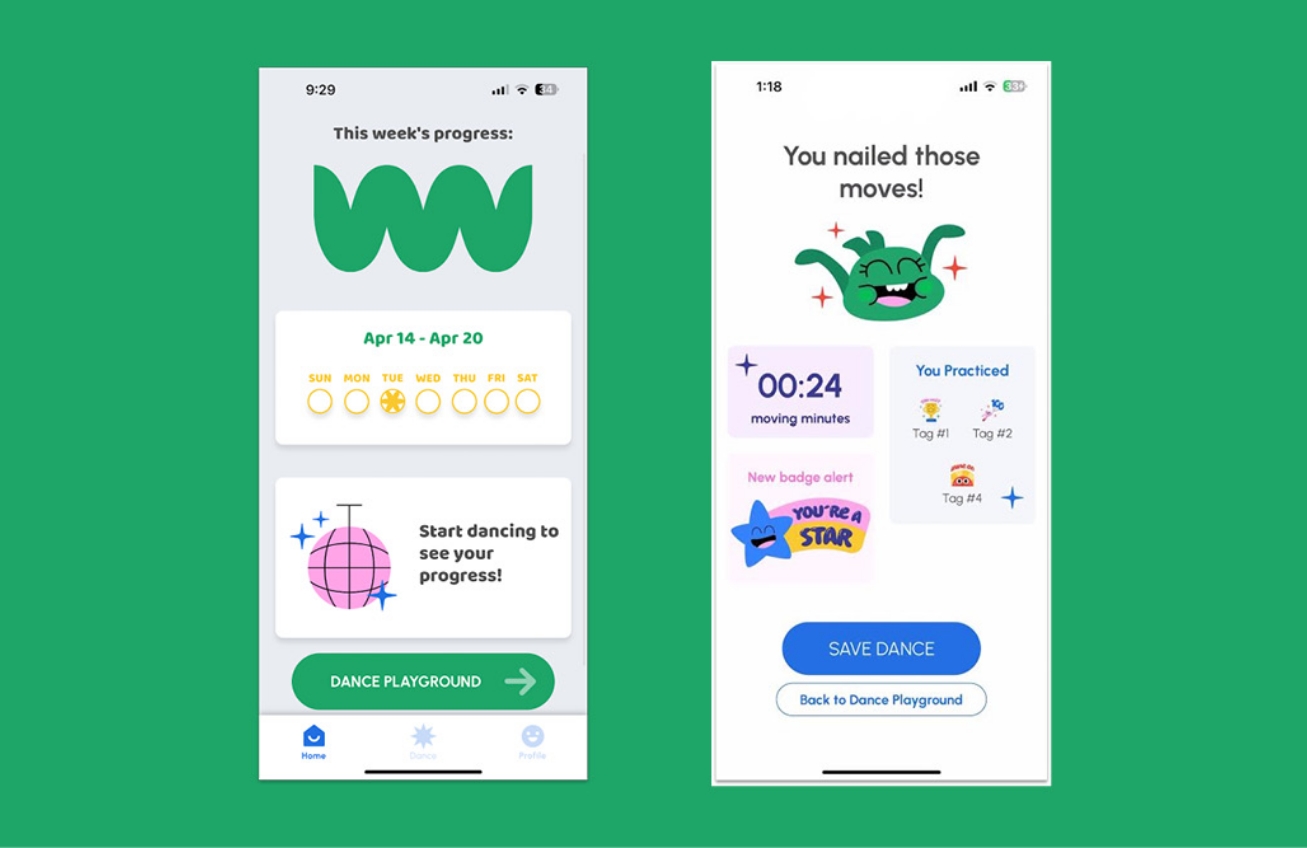
Computer Science/Mathematics Clinic
Building Engaging Tutorials for Webflow: Simplifying the Learning Experience
Webflow liaisons: Allan Leinwand P’27, Kirat Chhina
Students: Eden Goldberg, Aryaman Jaiswal (CMC), Amy Liu, Htoomyat Naing
Advisor: Vera Khovanskaya, adjunct professor, mathematics (2023–2024)
The Clinic team developed a gamified onboarding app for Webflow aimed at enhancing user adoption and retention by simplifying the learning process and providing users a heightened a sense of progress. The app guides users through interactive tutorials, allowing them to complete tasks within a half-built website. This hands-on approach bridges the knowledge gap for beginners and enriches the learning experience for all users.
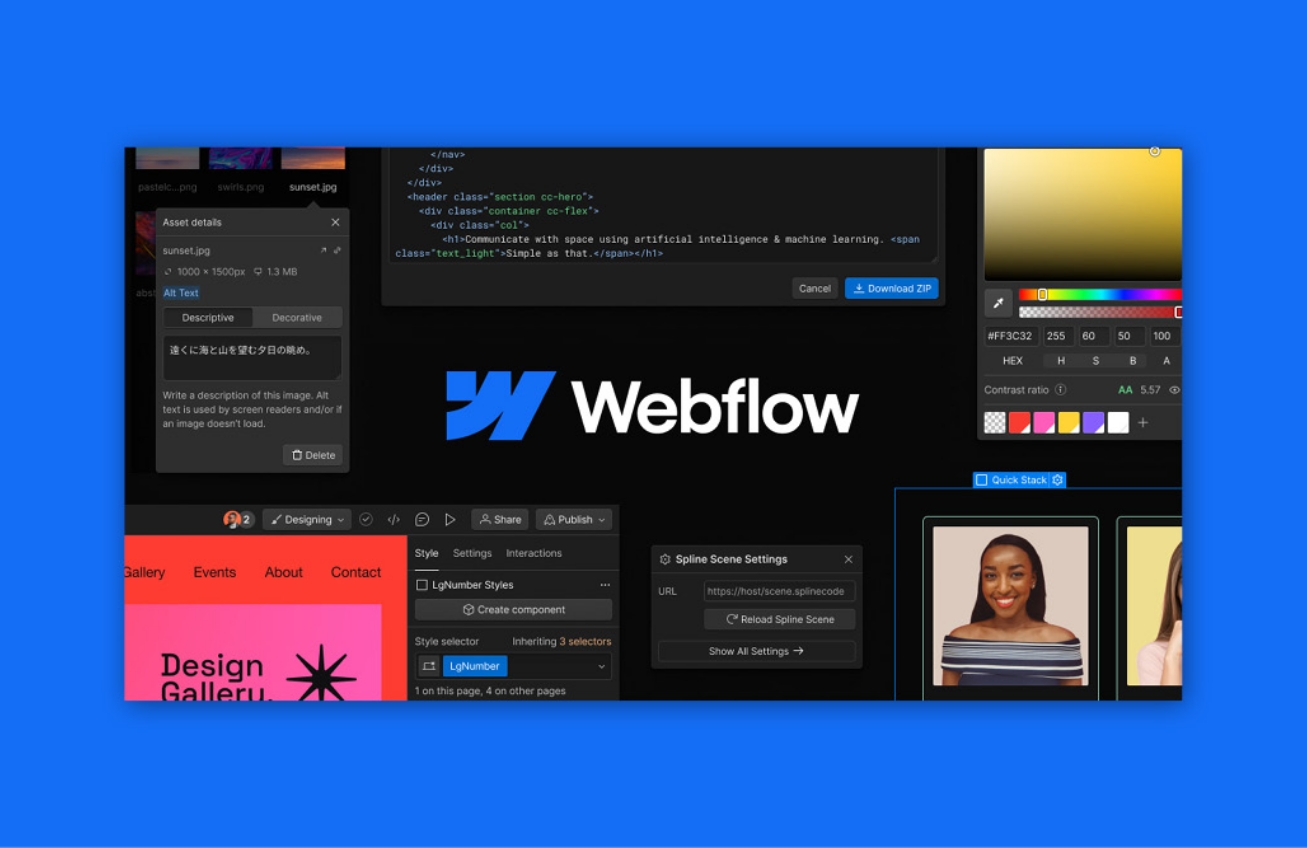
Computer Science/Physics Clinic
Training Scientists and Engineers in Exchange-Only Quantum Computing
HRL Laboratories liaisons: Thaddeus Ladd ’98 and Paul Jerger ’15
Students: Trishan Amruthur, Peter Luljak, Alec Roberson, YJ Tsai, Becca Verghese
Advisor: Jason Gallicchio, associate professor of physics
HRL Laboratories, a leading research organization specializing in exchange-only quantum computing (EOQC), was facing the problem of efficiently educating new hires on the principles of EOQC. Despite the publicly available information on quantum computing, there was very little documentation and training for HRL’s unique research. Team members developed a browser-based tool that synthesizes HRL’s research on EOQC and presented it in an interactive and digestible way for newly hired scientists and engineers.
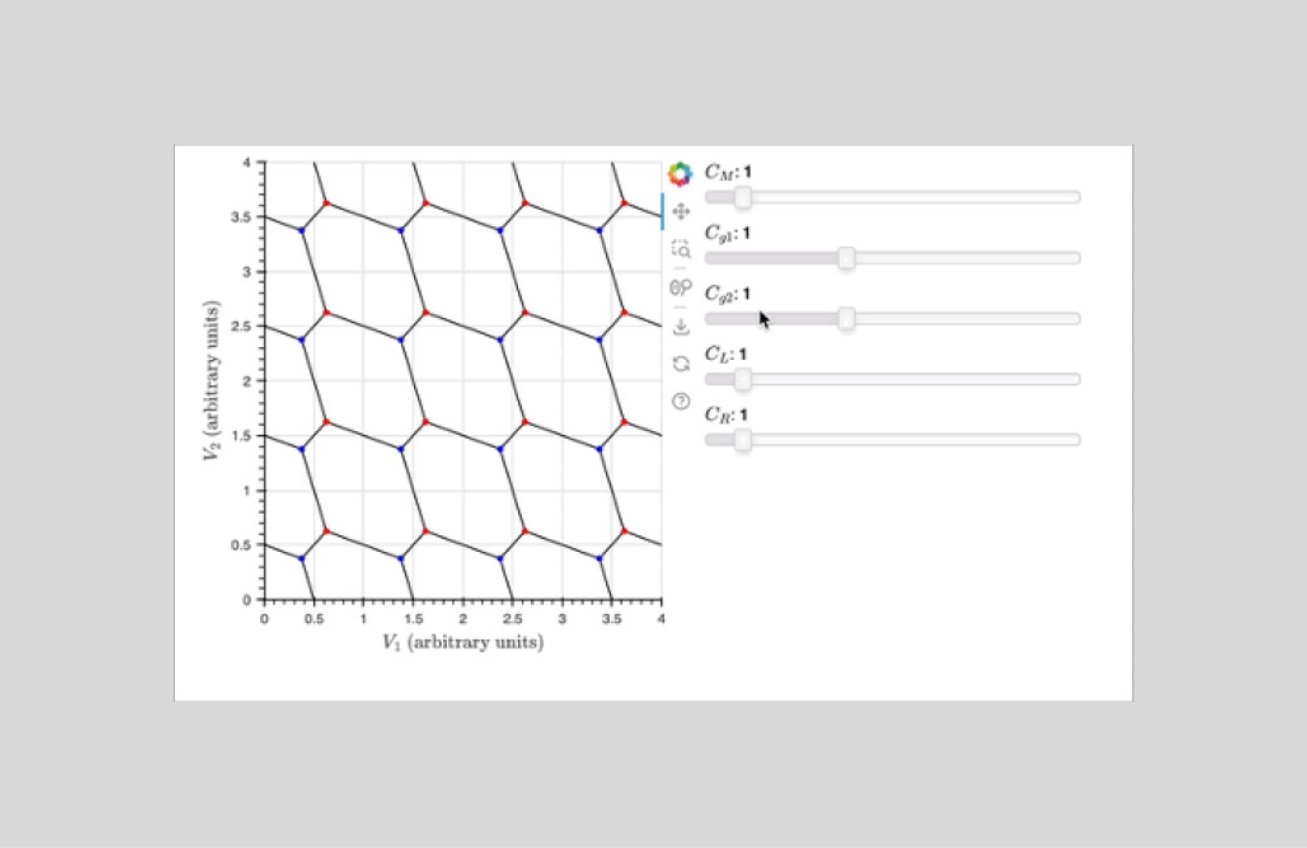
Engineering/Climate Clinic
Investigating a Landfill Gas-to-Renewable Natural Gas Plant
LS Power liaisons: Kathy French ’97, Jessica Haller
Students: Viviane Solomon, Nilay Pangrekar, Zoë Gomez-So, Tia Tounes, Kopchon Sittithammachoti Advisor: Mark Gale, visiting assistant professor of engineering (2023–2024)
Advisor: Mark Gale, visiting assistant professor of engineering (2023–2024)
LS Power is a company focused on power generation, electric transmission and energy infrastructure. The team investigated a plant that captures and refines landfill gas into renewable natural gas. They improved plant efficiency via deliverables, such as a report on methane loss locations and volumes, a framework to model adsorption beds’ lifetimes, landfill wellhead data analysis and a sensor installation plan to improve data collection.
